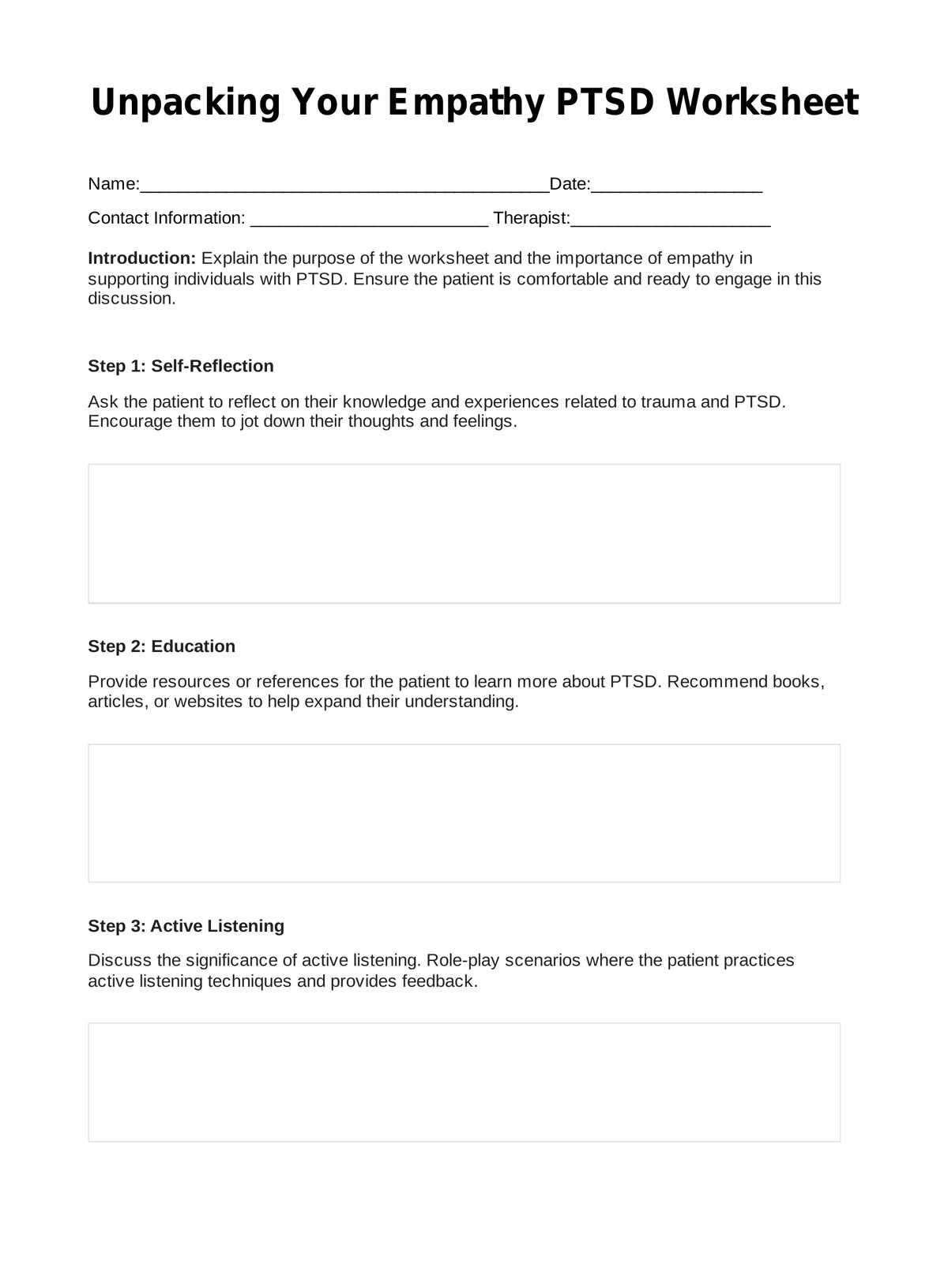The time to complete the worksheet varies depending on the user's pace and depth of reflection. Typically, it can take anywhere from 30 minutes to an hour.

Unpacking Your Empathy PTSD Worksheet
Enhance empathy and support for those with PTSD using the Unpacking Your Empathy PTSD Worksheet—a valuable resource for understanding and healing.
Use Template
Unpacking Your Empathy PTSD Worksheet Template
Commonly asked questions
The Unpacking Your Empathy PTSD Worksheet can be accessed and downloaded as a PDF document from relevant online sources or websites offering mental health support and education resources.
The worksheet is best used to foster understanding and support for individuals dealing with PTSD, whether you are a friend, family member, therapist, or part of a support group.
EHR and practice management software
Get started for free
*No credit card required
Free
$0/usd
Unlimited clients
Telehealth
1GB of storage
Client portal text
Automated billing and online payments











